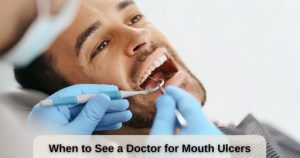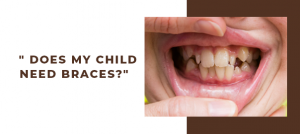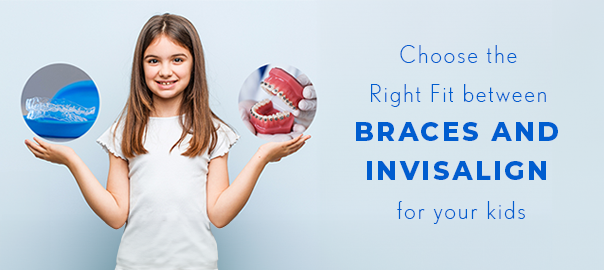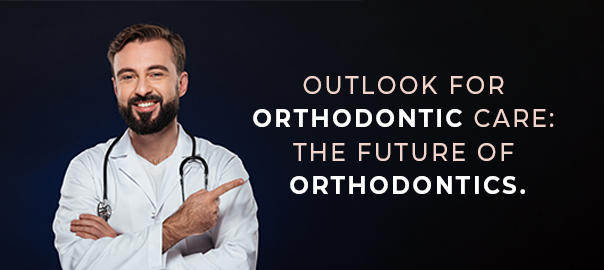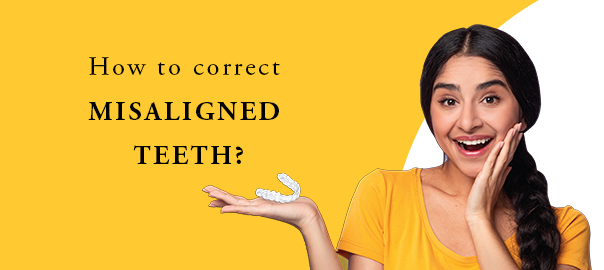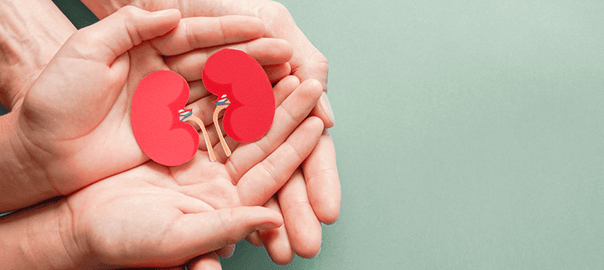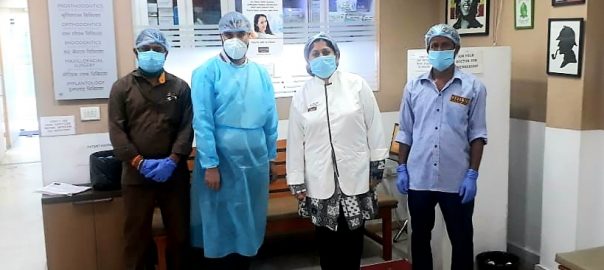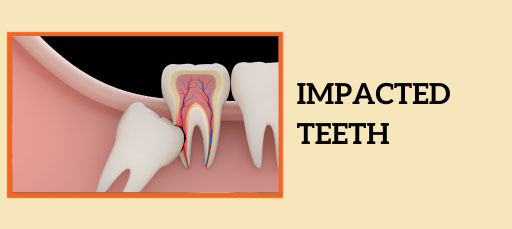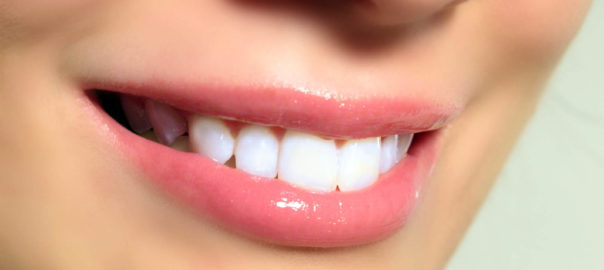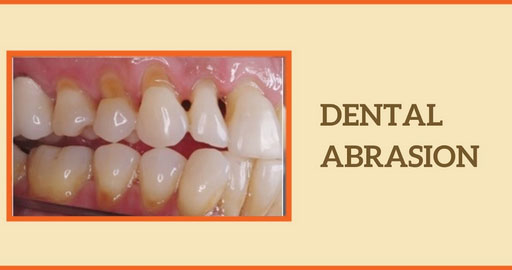
Dental Abrasion – Symptoms, Causes, Treatment
Dental abrasion is a common dental condition that affects many individuals. It occurs when the tooth enamel is gradually worn away due to friction, typically from factors other than tooth decay or dental trauma. While dental abrasion might not be as well-known as cavities or gum disease, it can lead to dental problems and discomfort. In this article, we will explore the symptoms, causes, and available treatments for dental abrasion.
Symptoms of Dental Abrasion
- Tooth Sensitivity: One of the most common symptoms of dental abrasion is tooth sensitivity. Affected individuals often experience pain or discomfort when consuming hot or cold foods and beverages. The exposed dentin, which lies beneath the enamel, can be particularly sensitive to temperature changes.
- Thinning or Worn Teeth: Dental abrasion results in the gradual erosion of tooth enamel. Over time, this can cause teeth to appear thinner or worn down, with flattened biting surfaces. Such changes in tooth structure can impact the overall appearance and functionality of the teeth.
- Notches or Grooves: As dental abrasion progresses, notches or grooves may form near the gumline or along the sides of the teeth. These areas are particularly vulnerable to erosion and can lead to further discomfort and complications.
- Tooth Discoloration: Dental abrasion can also lead to tooth discoloration. The exposed dentin can become yellow or brown, which can be aesthetically displeasing and may cause self-esteem issues.
Causes of Dental Abrasion
- Aggressive Tooth Brushing: One of the primary causes of dental abrasion is excessive and aggressive tooth brushing. Brushing too hard or using a toothbrush with hard bristles can gradually wear down the enamel over time.
- Abrasive Toothpaste: Some toothpaste formulations contain abrasive particles that can contribute to enamel erosion. It is essential to choose toothpaste with non-abrasive properties and consult with a dentist to select the most suitable oral care products.
- Poor Brushing Techniques: Inadequate brushing techniques, such as using a side-to-side motion instead of the recommended circular motion, can increase the risk of dental abrasion. It’s crucial to educate oneself on proper brushing techniques and avoid habits that can harm the teeth.
- Teeth Grinding (Bruxism): People who grind their teeth, a condition known as bruxism, are at a higher risk of dental abrasion. The constant friction between teeth during grinding can wear down the enamel and lead to tooth sensitivity and other dental problems, which then lead to dental fillings, cosmetic dentistry, and other dental treatments.
- Chewing Hard Objects: Chewing on hard objects like pens, ice, or fingernails can also contribute to dental abrasion. The repeated contact between hard surfaces and the teeth can erode enamel over time.
- Acidic Diet: Consuming a diet high in acidic foods and beverages, such as citrus fruits, carbonated drinks, and certain sports drinks, can weaken tooth enamel and make it more susceptible to abrasion.
Treatment and Prevention of Dental Abrasion
- Behavior Modification: The first step in treating dental abrasion is to identify and modify any behaviours or habits that contribute to the condition. This includes teaching proper tooth brushing techniques, discouraging teeth grinding, and avoiding the consumption of hard or acidic substances.
- Tooth-Colored Fillings: If notches or grooves have formed due to dental abrasion, a dentist may recommend tooth-colored fillings or bonding to restore the tooth’s shape and appearance.
- Fluoride Treatments: Dentists may apply fluoride treatments to strengthen the enamel and help reduce tooth sensitivity. Fluoride can be applied as a gel, foam, or varnish.
- Crowns or Veneers: In severe cases of dental abrasion where tooth structure has been significantly compromised, crowns or veneers may be recommended to protect and restore the affected teeth.
- Custom Mouthguards: For individuals with bruxism, custom-fitted mouthguards can help prevent further damage by providing a protective barrier between the upper and lower teeth during sleep.
- Dietary Changes: Reducing the consumption of acidic foods and beverages can help protect tooth enamel from further erosion. It’s essential to maintain a balanced diet for overall oral health.
- Regular Dental Checkups: Routine dental checkups are crucial for early detection and management of dental abrasion. Dentists can identify the condition’s progression and recommend appropriate treatments or consult with preventive dentistry.
When to see a doctor for Dental Abrasion?
While mild cases of dental abrasion may not require immediate attention, it’s advisable to see a dentist if you notice any of the following:
- 1. If you experience pain or discomfort while brushing, eating, or drinking, it’s important to consult a dentist. This could indicate that the abrasion has progressed and is affecting the underlying layers of the tooth.
- 2. Increased sensitivity to hot, cold, sweet, or acidic foods and drinks can be a sign of dental abrasion. Sensitivity may indicate that the protective enamel layer has worn down, exposing the more sensitive dentin underneath.
- 3. If you notice visible changes in the appearance of your teeth, such as notches or grooves near the gumline, it’s advisable to seek dental evaluation. These changes could be indicative of advanced abrasion.
- 4. Dental abrasion can sometimes lead to gum recession, where the gum tissue pulls away from the teeth. Receding gums can expose the roots of the teeth, leading to increased sensitivity and susceptibility to decay.
- 5. Dental abrasion can create areas where food particles and bacteria accumulate, leading to bad breath. If you experience persistent bad breath despite maintaining good oral hygiene habits, it’s important to see a dentist.
- 6. Abrasion can sometimes affect the alignment of teeth or the way they come together when you bite. If you notice changes in your bite or difficulty chewing, it’s a good idea to consult a dentist.
Conclusion
Dental abrasion is a common dental problem that can lead to tooth sensitivity, aesthetic concerns, and functional issues. Fortunately, it is a preventable and treatable condition.
By identifying the causes and symptoms of dental abrasion and taking proactive steps to prevent it, individuals can maintain their oral health and preserve their beautiful smiles. Regular dental checkups at a dental clinic near you is essential to catch and address dental abrasion in its early stages, ensuring the longevity and vitality of your teeth.
To book an appointment at Clove Dental, please click here.
FAQ’S
1. What is dental abrasion?
Dental abrasion refers to the wearing away of tooth enamel caused by friction from external factors such as aggressive tooth brushing, abrasive toothpaste, or habits like teeth grinding.
2. What are the common causes of dental abrasion?
Dental abrasion can be caused by various factors including
- Aggressive tooth brushing techniques
- Using a hard-bristled toothbrush
- Abrasive toothpaste
- Frequent consumption of acidic foods and drinks
- Teeth grinding (bruxism)
- Using teeth as tools for opening packages or bottles.
3. What are the symptoms of dental abrasion?
Symptoms of dental abrasion may include tooth sensitivity to hot, cold, sweet, or acidic foods and drinks, visible notches or grooves near the gumline, tooth pain or discomfort, receding gums, changes in bite, and persistent bad breath.
4. How can dental abrasion be prevented?
To prevent dental abrasion, it is important to practice good oral hygiene habits, including using a soft-bristled toothbrush and gentle brushing technique, avoiding abrasive toothpaste, limiting consumption of acidic foods and drinks, wearing a mouthguard if you grind your teeth, and avoiding using teeth as tools.
5. Is dental abrasion reversible?
In the early stages, dental abrasion may be reversible with proper oral care and preventive measures. However, if left untreated, it can lead to irreversible damage to the tooth enamel and require dental intervention such as fillings, dental bonding, or crowns to restore the affected teeth.
6. When should I see a dentist for dental abrasion?
It is advisable to see a dentist if you experience symptoms of dental abrasion such as tooth sensitivity, visible changes in your teeth, persistent discomfort, or changes in your bite. Early detection and intervention can help prevent further damage and preserve dental health.
7. How is dental abrasion treated?
Treatment for dental abrasion depends on the severity of the condition. In mild cases, your dentist may recommend changes in oral hygiene habits and lifestyle, such as using a softer toothbrush and avoiding abrasive toothpaste. In more severe cases, dental interventions such as fillings, dental bonding, or crowns may be necessary to restore the affected teeth.
8. Can dental abrasion lead to other dental problems?
Yes, untreated dental abrasion can lead to other dental problems such as tooth decay, gum recession, tooth sensitivity, and changes in bite alignment. Therefore, it is important to address dental abrasion early to prevent further complications.
Leave a Reply
Leave a Reply








